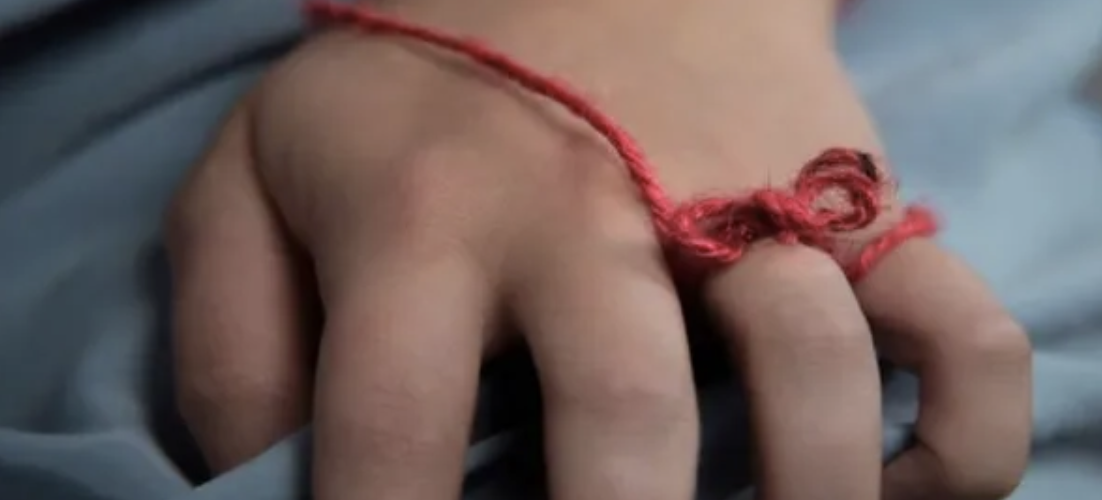At first glance, this weekend’s two “think pieces” appear to clash.
But readers (and viewers) who dig deeper will find two radically different looks at important and valid stories linked to marriage and family life in very different traditional religious communities — Jewish, fundamentalist Protestant and Islamic.
There is much here for religion-news professionals, and news consumers, to ponder.
One story is dark and hellish, looking at the reality of forced marriages in a few religious groups. The other glows with positive images and voices, as mothers in the United Kingdom share stories from their lives in large, traditional, Catholic families.
First, let’s look at this piece from Simi Horwitz at the Forward: “In 21st century America, where arranged child marriages remain a scourge.” The overture:
Kate Ryan Brewer’s “Knots: A Forced Marriage Story” is one disturbing, though important, documentary, one that grows increasingly unsettling as three articulate and intelligent young women matter-of-factly recount their belittling, exploitive, and ultimately dehumanizing experiences in forced marriages. Mercifully each has escaped and forged successful, independent lives; one has become a recognized outspoken activist on behalf of victims.
The filmmakers assert that the practice of arranged marriages, often involving brides who are 15 or younger, continues almost unchecked and unchallenged. In fact, the only states that require the marrying parties to be at least 18 are Delaware, New Jersey, Minnesota and Pennsylvania. Between 2000 and 2010, nearly 250,000 children in the U.S. were married, and 77 per cent were young girls wedded off to much older men. In some cases they were forced to marry their rapists in order to salvage their reputations and the family’s honor.
Each of the women in the film hails from an insular, conservative, highly religious, patriarchal subculture that is fearful of the outside world. The indoctrination and social pressure starts early. They are all “groomed” to be wives and mothers. The consequence for disobedience is to be shunned from the community and even one’s own family. The girls themselves believe, at least initially, that they are happy, that their goals are fully in synch with that of their sects.
One more clip to consider:
All three narratives are bone-chilling, though the film could have benefitted from better contextualization: a little more about the history of forced marriages and perhaps a comment or two from a wife for whom it worked. I also would have wanted to hear from the husbands in question; after all, they too were forced into arranged marriages.
The next video, from a documentary series called “One of Nine,” is not — obviously — about the same subject.
However, there are religious and secular critics who would insist that it is from an adjacent universe.
Obviously, these Catholic mothers would disagree. Here is my question: What would it take to draw mainstream news coverage of a story of this kind? Is there valid news here?
Here is some background from Rod “Benedict Option” Dreher, at Substack (subscribers have access). This material is quoted from a letter to Dreher from one of his readers in UK:
Some friends of friends, Peter and Maria Jones, have started a youtube channel, called “One of Nine” which is a series of interviews with Catholic families (mainly Catholic mothers) around the UK and how they bring their faith into daily family life. These interviews are aired on a weekly basis and aim to show that, even in a country as secularised as the UK, there are many happy, thriving authentic Catholic families who are open to life and who deal with life’s challenges through the graces of the faith.
One particularly moving episode featured a couple speaking about the loss of their seven year old daughter Ruth in a car accident, and how their faith and community got them through it. This is the link: In life, in death, O Lord, Abide with me | The life and death of our sweet daughter, Ruth | oo9 – YouTube
As a mother of young children, worried about the challenges of raising them as Christians in a post-Christian culture, I have found these videos so helpful and inspiring. They are so simple, nothing fancy — just showing what daily life looks like when it is navigated with trust in God. As one viewer said, these families “make the case for Christ” each in their own individual way and through their particular calling.
Rod added this note:
I didn’t know what to expect, but they are exactly as my reader describes. They are simple, but professionally done. I found myself wanting to hang out with these families. You will too.
A valid news story? Mere anecdotes?
Reporters could and should ask questions about most videos such as these. I would argue that both point to important, and valid, subjects for coverage.
Think about it?
FIRST IMAGE: Screenshot from the “Knots” video included in this post.











